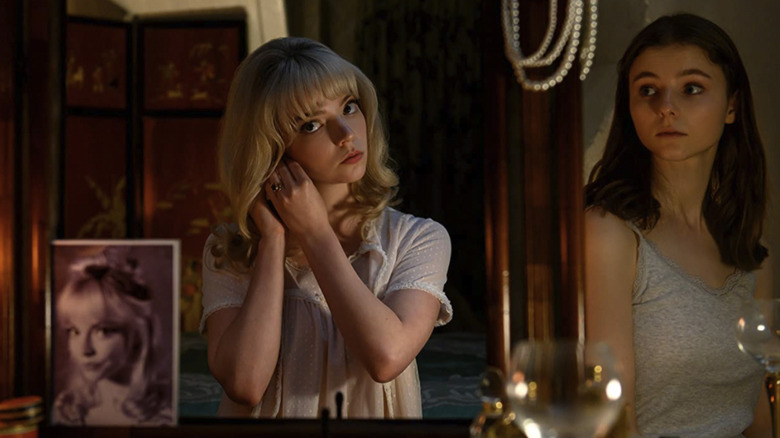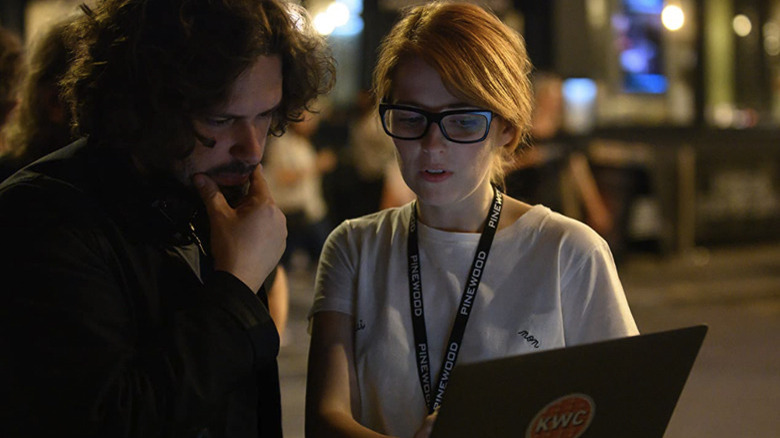Last Night In Soho Writer Reminds Us That Nostalgia Was Originally Classified As An Illness [Exclusive]
Edgar Wright's new movie "Last Night in Soho" (which arrives in theaters this week) tells the story of a young woman from modern times who is offered a window back to London in the 1960s, only to discover that the past is not quite as glitzy and sexy as it may have seemed. The film interrogates the idea of nostalgia, which has become an inescapable and permeating force in popular culture over the past 20 years and has spilled out into the real world in predictable but sometimes dangerous ways.
Krysty Wilson-Cairns, who co-wrote the film's screenplay alongside Wright, calls herself "quite a nostalgic person" who wouldn't be opposed to a bit of time travel here and there. "But you have to be careful that you don't be so consumed by the past that you forget about the present or the future," she told us in an interview this week. Wilson-Cairns is well aware of how insidious nostalgia can be in the wrong circumstances, and she reminded us about one of the term's earliest uses, which is much different from the way it's used today.
The Weaponization of Nostalgia
Our full interview will be published soon, but one of the most interesting aspects of our conversation centered around the origin of the term "nostalgia" and what it used to mean. "Originally nostalgia was a classified illness that happened to Swiss mercenaries when they were fighting for the Pope," Wilson-Cairns explained. "They were so homesick they couldn't function and it was called an illness. And then through the centuries it kind of gets twisted all the way down to something that's now kind of quaint and kitsch."
It's all well and good to fantasize about traveling back in time or want to transport back to certain interactions in your life that were especially meaningful, but nostalgia isn't all rose-tinted glasses: if you're not careful, those glasses can quickly break into shards. "I think in recent years nostalgia's been weaponized," Wilson-Cairns told us. "People talk about the good old days — 'Oh, why don't we go back to the good old days? Vote for me. I'll take you back to the good old days' — and I think that is where it crosses the tipping point from a hobby, [from] something nice, to something that's actively dangerous in our world."
Of course, it's not only politics where nostalgia can be used as unattainable carrot on the end of a stick. It's on display practically everywhere you look in Hollywood, from things like "Stranger Things" and "Fear Street," which I'd argue employ it fairly well, to stuff like "Lightyear," which, judging solely from its newly-released teaser trailer, may not be quite as creatively successful.
I'll leave you with this quote from French novelist Marcel Proust, which I think perfectly sums up what we've been talking about here:
"Poets claim that we recapture for a moment the self that we were long ago when we enter some house or garden in which we used to live in our youth. But these are most hazardous pilgrimages, which end as often in disappointment as in success. It is in ourselves that we should rather seek to find those fixed places, contemporaneous with different years."

